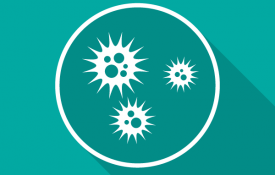-

New Research in Psychological Science
A sample of research on language style and social networks, the cultural differences that affect the relationship between aging and well-being, and how infant and adult brains interact while they communicate.
-
Column: Why We Need to Redefine ‘Full Time’ Work
In 1926, the titan of U.S. industry Henry Ford single-handedly scaled back his full-time employee’s workweek from forty-eight to forty hours. In justifying his decision, he claimed “It is high time to rid ourselves of the notion that leisure for workmen is either lost time or a class privilege.” The result was a vast improvement in worker productivity and company profits. In 1940, Congress made the five-day, 40-hour workweek the law of the land by amending the Fair Labor Standards Act. Yet over time, the number of hours worked by American full-time employees has lengthened considerably.
-
Why William and Kate Are a ‘Fairy Tale’ but Harry and Meghan Are ‘Couple Goals’
The phrase fairy tale always seems to hover in the air whenever a marriage takes place within the English monarchy. And indeed, the three most high-profile royal weddings in modern history—those of Prince Charles and Diana Spencer, Prince William and Kate Middleton, and Prince Harry and Meghan Markle—have all involved the classic fairy-tale story line of a prince sweeping a young, beautiful woman off her feet into the luxury and high status of royal life. Prince Charles and Diana did not go on to live happily ever after, but from the outside at least, Prince William and Kate appear to be doing something akin to that.
-
How Negativity Can Kill a Relationship
There’s an elegant symmetry to traditional wedding vows: for better or for worse. But love is not symmetrical, and most of us don’t realize how lopsided it can be. The worse matters far more than the better in marriage or any other relationship. That’s how the brain works. ... In relationships, the negativity effect magnifies your partner’s faults, real or imagined, starting with their ingratitude, because you’re also biased by an internal overconfidence that magnifies your own strengths. So you wonder how your partner can be so selfish and so blind to your virtues—to all that you’ve done for them. You contemplate one of life’s most exasperating mysteries: Why don’t they appreciate me? ...
-
How To Design Your Interview Based on Behavioral Science
As the blind dates of business, job interviews are a dance between organizations that hope to hire the best person for the job and applicants hoping to find the best job for themselves. For business leaders searching for the right candidates, they have full control of the interview environment and can (read: should) design their hiring processes to be inclusive and eliminate bias. But for applicants hoping to shine within systems they have little control over, it may seem like there are few strategies they can use to get ahead. Fortunately, the behavioral sciences have some advice for your next job interview (and it’s not to work on your power pose).
-

NIH Encourages Studying the Social Contagion of Substance Abuse
The National Institute on Drug Abuse (NIDA) has issued a Notice of Special Interest inviting grant applications proposing to study the social contagion of behavior and substance abuse.

